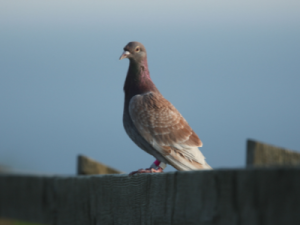In this blog, we will talk about everything birds, from how to identify if you have an infestation or a nest nearby to how to deter birds and prevent nesting in the future.
When we are considering the above, it is really important you seek advice from a qualified pest controller beforehand as every wild bird and their eggs in the UK is rightfully protected by law under the Wildlife and Countryside Act 1981.
There are hundreds of different species of bird in the UK and even though they are all beautiful in their own way, some species can cause damage to buildings, be a constant nuisance as well as a public health concern and at this point is where a fully qualified and full insured pest control should step in to help manage and control your bird issue.
The common Seagull and Pigeons are amongst the most common birds who can cause the most havoc in both your home and your business if they have a ready food source and a sheltered area to nest, these birds can grow and breed rapidly and soon be a thriving colony and once they have settled it becomes extremely difficult to get rid whilst the bird is still nesting.
Do you think you have an issue with birds? Here are some signs you have an infestation of a bird pest
- Bird fouling/droppings
- Loud noises and cries from young chicks
- Finding nesting material throughout your home and business
- Birds settling around your property e.g. on window ledges or guttering
- If you identify a secondary issue for example bird mites
As expected, you will noticed birds nesting at height away from the hustle and bustle, which makes it harder to identify and prevent.
Bird Management, Control & Prevention
There are various types of bird management solutions which can be used such as;
- Bird netting
- Spikes
- Bird wire
- Bird gel
- Laser deterrents


It is also common for falconry to be used in bigger commercial properties for example a shopping centre where the bird, either a Hawk or a Falcon, is used to scare birds from a particular area. The Hawk/Falcon makes an area undesirable and therefore encourages birds to steer clear of that particular site.
If bird proofing is required on a property, it is highly recommended you seek professional advice from a fully qualified and insurance engineer who has a good understanding of bird behaviour to make sure the proofing is as effective as possible, as well as understanding the laws which surround birds within the UK.
When dealing with Birds, the Law must be kept in mind at all times. You can find more information about the Wildlife and Countryside Act 1981 at www.rspb.org.uk/birds-and-wildlife/advice/wildlife-and-the-law/wildlife-and-countryside-act/
Below, you can find an overview of The Wildlife and Countryside Act 1981.
The Wildlife and Countryside Act 1981 is the primary legislation which protects animals, plants and habitats in the UK.
About the Act
Under the Wildlife and Countryside Act, a wild bird is defined as any bird of a species which is resident in or is a visitor to the European Territory of any member state in a wild state.
Game birds however are not included in this definition (except for limited parts of the Act). They are covered by the Game Acts, which fully protect them during the close season.
Basic Protection
All birds, their nests and eggs are protected by law and it is thus an offence, with certain exceptions (see Exceptions), to:
- Intentionally kill, injure or take any wild bird.
- Intentionally take, damage or destroy the nest of any wild bird while it is in use or being built.
- Intentionally take or destroy the egg of any wild bird.
- Have in one’s possession or control any wild bird, dead or alive, or any part of a wild bird, which has been taken in contravention of the Act or the Protection of Birds Act 1954.
- Have in one’s possession or control any egg or part of an egg which has been taken in contravention of the Act or the Protection of Birds Act 1954.
- Use traps or similar items to kill, injure or take wild birds.
- Have in one’s possession or control any bird of a species occurring on Schedule 4 of the Act unless registered, and in most cases ringed, in accordance with the Secretary of State’s regulations (see Schedules).
- Intentionally or recklessly disturb any wild bird listed on Schedule 1 while it is nest building, or at a nest containing eggs or young, or disturb the dependent young of such a bird.
Fines
Penalties that can be imposed for criminal offences in respect of a single bird, nest or egg contrary to the Wildlife and Countryside Act 1981 is an unlimited fine, up to six months imprisonment or both.
For Further Information
For detailed information, it is advisable to consult the Act itself, which you can find on the UK Legislation website.
Please also note that because of devolution there are now some significant differences in the law between the constituent countries of the UK.
